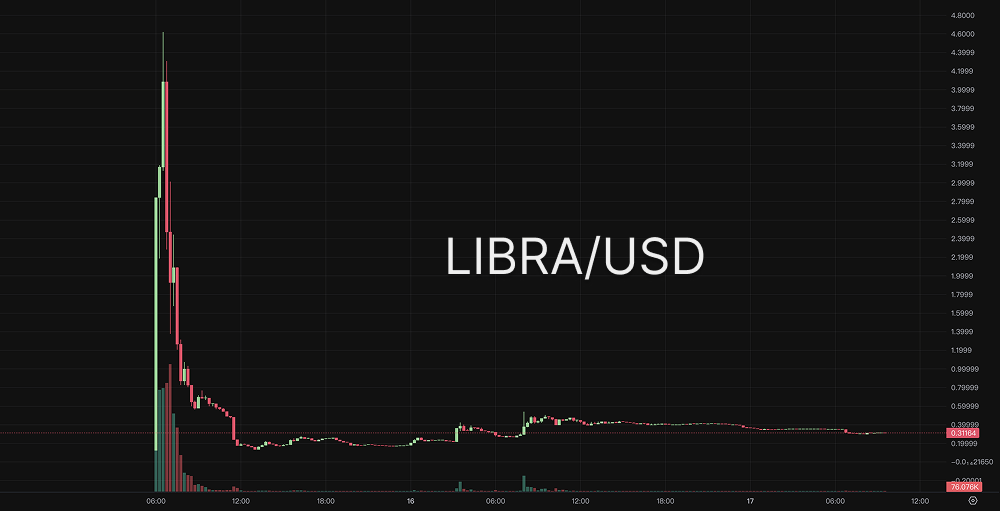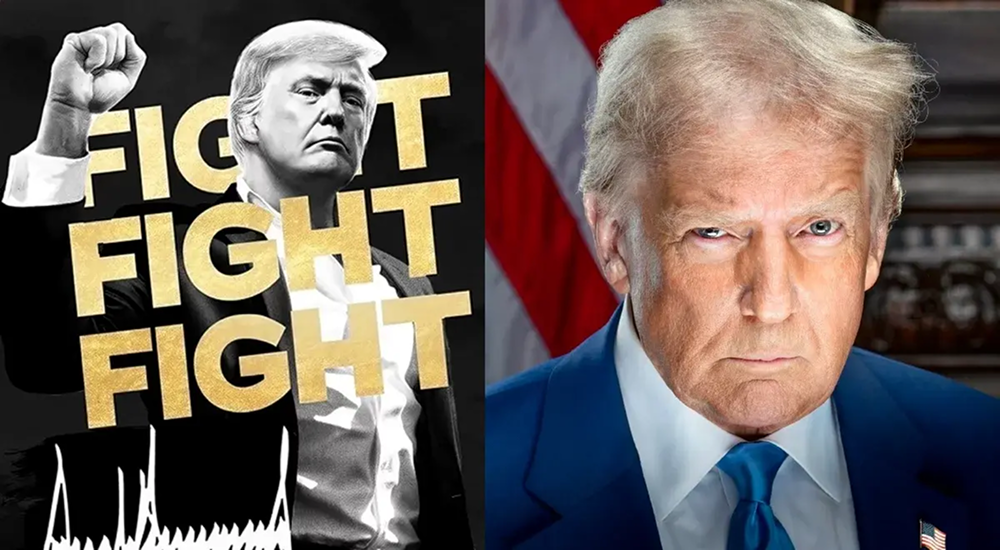On February 15, 2025, Argentine President Javier Milei announced the launch of the meme coin $LIBRA through his official X account, claiming it would "promote the Argentine economy." However, the coin experienced extreme volatility in a short period, with its market value evaporating by over 90%, causing market turmoil. On-chain data indicated that a team suspected to have Chinese connections, KIP Protocol, precisely manipulated the market, cashing out $107 million in just a few hours. The Argentine political and judicial institutions quickly intervened to investigate, and the opposition threatened to initiate impeachment proceedings against Milei. The LIBRA incident not only highlighted the risks of the crypto market but also pushed Argentina's financial crisis to a new peak.

I. The President's Direct Involvement: An Absurd Drama from "Economic Innovation" to "Deleting Tweets" in 48 Hours
On February 15, 2025, Argentine President Javier Milei boldly announced the launch of the meme coin LIBRA through his official X account, claiming it would "provide financing support for Argentine private enterprises and promote economic growth," and included the token's contract address on the Solana blockchain. Unlike recent incidents of "hacked accounts issuing coins," Milei's Instagram account simultaneously published the same content, essentially ruling out the possibility of account theft.
Market Reaction: A Carefully Designed Liquidity Frenzy
After the announcement, the price of LIBRA skyrocketed from $0.01 to $7.8 within 30 minutes, with its market value briefly surpassing $5 billion. However, this frenzy lasted only a few hours: the price then plummeted to $0.16, with the market value evaporating by over 95%. More than 260,000 investors faced liquidation within 24 hours, suffering heavy losses. As of February 17, LIBRA's market value was only about $590 million, and the liquidity pool shrank to $45 million, nearly reaching zero.

The President's "Backtrack" and Investigation Initiation
In the face of the market crash, Milei quickly deleted the tweet and claimed he "did not understand the project details," emphasizing that LIBRA was a "private project" unrelated to the government. On February 16, Milei requested the Anti-Corruption Office (OA) to investigate whether government members were involved in misconduct, attempting to absolve himself of responsibility through a "self-examination." However, this move did not quell public opinion. On February 17, Argentine lawyers, along with the former central bank president, filed a fraud lawsuit against Milei, accusing him of "using presidential power to endorse a scam," while the opposition called for impeachment proceedings.
II. The Harvesting Logic Under Political Halo: Economic Crisis, Populist Incitement, and Sovereign Credit Overdraft
Economic Dilemma: "Desperate Speculation" Amidst 287.9% Inflation Rate
Argentina has been mired in economic turmoil in recent years: the inflation rate reached 287.9% in 2024, forcing the government to cut public spending by 30% and close several agencies to alleviate fiscal pressure. Against this backdrop, Milei used "cryptocurrency to save the country" as a gimmick, packaging LIBRA as a symbol of "free market reform" to incite speculative sentiment among the public. However, this operation contradicted his previously aggressive policies of dollarization and freezing cooperation with China, exposing the chaos in economic governance.
The Political Endorsement Trap: From Trump to Milei's "Celebrity Scythe"
Milei is not the first politician to venture into cryptocurrency. In January 2025, former U.S. President Trump launched the meme coin TRUMP, which saw its market value surge by 1250% on the first day, but his family cashed out over $100 million through transaction fees, leading to $2 billion in losses for 810,000 investors. Similarly, the CAR coin launched by the president of the Central African Republic was questioned for being a "financial speculation disguised by the poverty of the country" due to technical flaws and fund centralization. Politicians have increasingly used "innovation" as a guise for harvesting, becoming a global risk.
Sovereign Credit Crisis: The "Cryptocurrency-ization" of National Image
After the collapse of LIBRA, Argentina's sovereign credit rating was downgraded by international agencies. Analysts pointed out that if such incidents occur frequently, emerging market countries may become "cryptocurrency testing grounds," further undermining their financial stability.

III. Technical Flaws and Regulatory Vacuum: How Zero-Risk Tokens "Barely Launched"
Rough Technical Foundation: From Virus Websites to False Certifications
The LIBRA project exposed multiple technical flaws:
- Zero white paper and security risks: The project had no technical white paper, the official website domain was registered only 4 days prior, and it was detected to carry a virus by SlowMist founder Yu Xian.
- Exchange blunders misdirecting traffic: The Moonshot platform displayed the LIBRA contract address without verification, misleading investors into thinking it was "officially certified," accelerating fund inflow.
"Impromptu Revelry" Under Regulatory Absence
Although Argentina had previously discussed cryptocurrency cooperation with El Salvador, its financial system had not established an effective regulatory framework. The issuance of LIBRA lacked compliance review and did not disclose the flow of funds, exposing systemic vulnerabilities in digital currency regulation in emerging markets.
IV. Unveiling the All-Chinese "Harvesting Chain": A Perfect Loop of Ambush, Sniping, and Retreat
On-chain data indicated that behind the collapse of LIBRA was a highly organized harvesting chain, with the core operators pointing to the Chinese-led KIP Protocol team.
1. Initial Ambush: Cross-Border Fund Allocation and Liquidity Layout
- Fund preparation: Hours before the tweet was published, three associated addresses withdrew $57.6 million USDC and 249,000 SOL (approximately $49.7 million) from exchanges like Binance and Bybit to ensure ample "ammunition."
- Liquidity manipulation: Eight wallets associated with KIP Protocol cashed out $107 million through adding/removing liquidity and collecting transaction fees.
2. Precise Sniping: Millisecond Synchronization of Presidential Tweets and Market Manipulation
At the moment the tweet was published, insider traders used bot scripts to make large purchases, creating a false impression of a price surge to attract retail investors. Data showed that at least three addresses sold at the price peak, profiting over $20 million.
3. Lightning Retreat: Deleting Tweets and Fund Exit
When the price plummeted to $0.6, the team quickly withdrew liquidity to cash out, coinciding with Milei deleting the tweet and shifting blame by claiming "not to understand the project," completing the harvesting loop. Project advisor Kelsier Ventures even suggested "reinvesting and burning $100 million worth of tokens" to stabilize the market, but it was too late.

V. The Global Warning of the LIBRA Incident: The "Politicalization Trap" of Cryptocurrency and Investor Self-Rescue
The Conspiracy of Power and Capital: The Demise of Technological Idealism
The LIBRA farce reveals that cryptocurrency is transforming from a "decentralized revolution" into a tool for politicians and capital to harvest. When technology becomes a cover for power rent-seeking, its underlying value proposition has become a mere facade.
The Urgency of Regulation: From "Permissive Innovation" to "Global Cooperation"
The incident highlights the urgent need for emerging markets to establish mechanisms for reviewing cryptocurrency issuance, monitoring fund flows, and protecting investors. The International Monetary Fund (IMF) has called for the inclusion of "politician-endorsed tokens" in the financial stability risk assessment framework.
Investor Warning: Stay Away from "Three No" Tokens
- No value anchoring: The price of meme coins relies entirely on speculation; cases like LIBRA and TRUMP prove their essence as "air coins."
- No transparency mechanism: Projects with anonymous teams and undisclosed liquidity pools carry extremely high risks.
- No regulatory endorsement: Even if a president endorses it, it does not guarantee safety.
Conclusion: When Freedom Becomes a Scythe
Milei once promoted economic reform with the slogan "Long Live Freedom" (Viva la Libertad), but the LIBRA incident indicates that unrestrained freedom will only become a tool for harvesting the weak. In this farce, the only reality is the blood and tears of investors and the chaos left in the wake of the collapse. The future of the cryptocurrency market depends on whether it can break free from the distorted symbiosis of power and capital and return to the original intention of technological inclusivity.
Disclaimer: The above content does not constitute investment advice.
AiCoin Official Website: www.aicoin.com
Telegram: t.me/aicoincn
Twitter: x.com/AiCoinzh
Email: support@aicoin.com
Group Chat: Customer Service Yingying、Customer Service KK
免责声明:本文章仅代表作者个人观点,不代表本平台的立场和观点。本文章仅供信息分享,不构成对任何人的任何投资建议。用户与作者之间的任何争议,与本平台无关。如网页中刊载的文章或图片涉及侵权,请提供相关的权利证明和身份证明发送邮件到support@aicoin.com,本平台相关工作人员将会进行核查。




